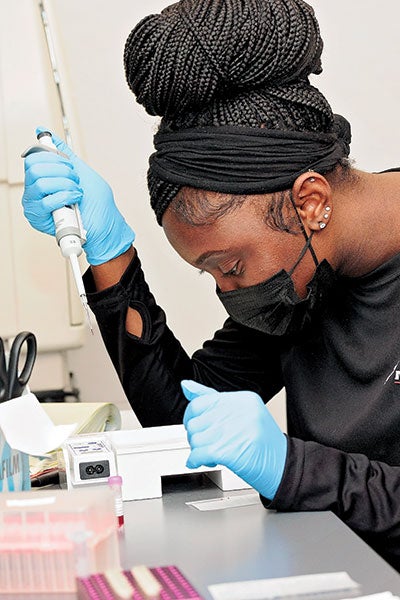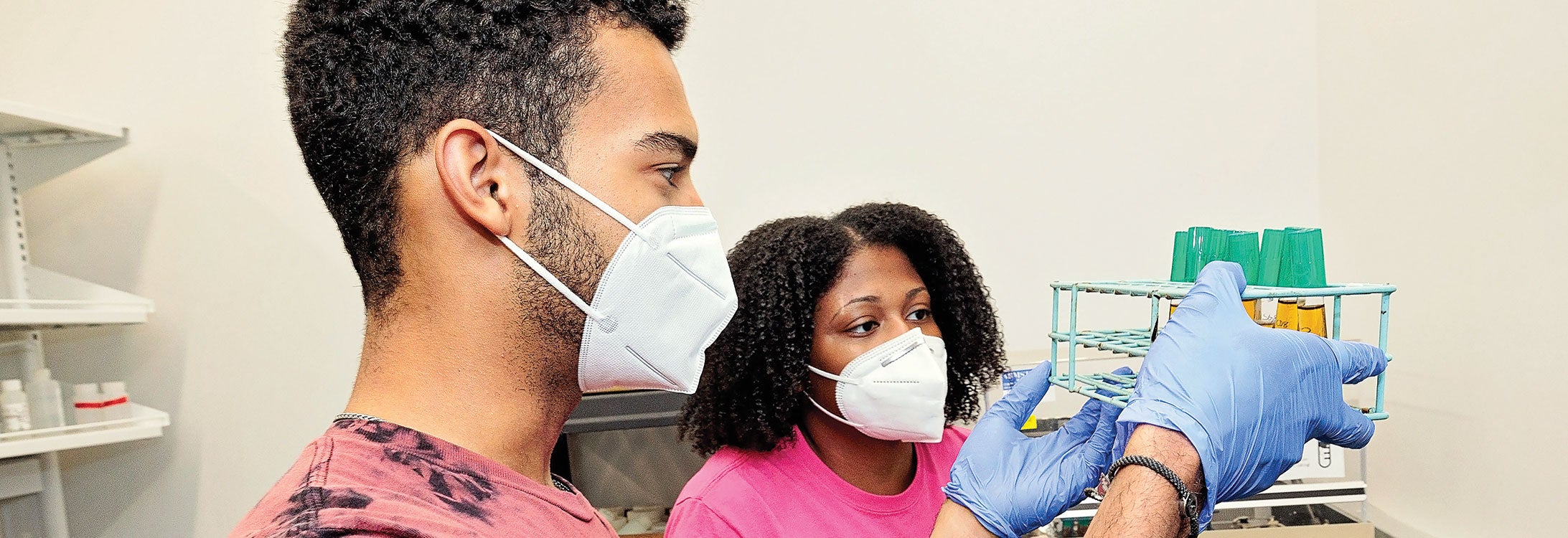Grant to support minority public health graduate students at ECU
Eastern North Carolina, with its high levels of poverty and disadvantaged communities, is riddled with high rates of preventable chronic health conditions, such as diabetes, heart disease and obesity. The COVID-19 pandemic only made things worse, exposing the ongoing need for a strong public health infrastructure.
Thanks to a $1.3 million grant from the North Carolina GlaxoSmithKline Foundation, undergraduates representing underserved groups from the state’s minority-serving institutions are in the running for full-ride scholarships for health promotion graduate programs at East Carolina University. The program’s goals are simple: Get health promotion-trained minority graduates into rural and underserved communities to help turn the tide on rural North Carolina’s poor health outcomes.

Fayetteville State University student Alexis Nealy works in the Life Sciences and Biotechnology Building.
The first contingent of students will come from Fayetteville State University and the University of North Carolina at Pembroke, with the program expanding to the UNC System’s historically Black colleges and universities in the coming years.
“It is exciting to see this program supporting diversity and providing opportunities to underserved students centered on public health graduate educational attainment, and the future impact of those educated through our commitment to this program shows promise to impact the health of the eastern N.C. residents for years to come,” said Marilyn Foote-Hudson, executive director of the N.C. GlaxoSmithKline Foundation.
About a dozen prospective applicants will participate in a summer immersion program each year — living on campus, meeting with potential graduate school mentors, building a peer-to-peer community of early career scholars and preparing to apply for admission to ECU.
The program will also include research experiences and professional development opportunities such as writing resumes, building communication and interviewing skills and gaining exposure to career opportunities in research and public health.
Ten students a year for the next four years selected from the summer immersion program will be given full tutition for one of ECU’s health promotion graduate degrees: public health, environmental health, health education, biology and molecular biology, and biotechnology.
FSU Chancellor Darrell Allison said North Carolina’s future is tied to a strong public health infrastructure. “Our partnership with ECU aligns with Fayetteville State’s strategic priorities of academic excellence, sustaining the university into the future and providing a real and lasting impact in the communities that our students come from,” he said.
